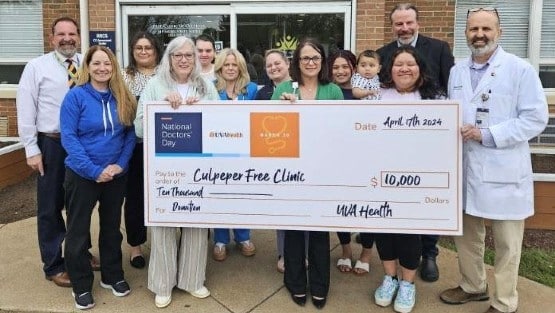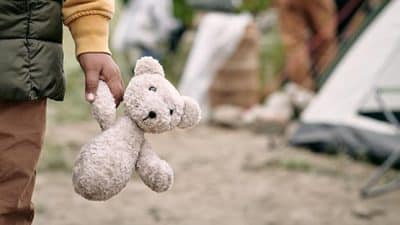
Selling eggs directly to people for years, Wise Acre owners Bryan Boyd and Raina Brolan were forced to shut down their operation by the winery that owns the road to the stand. A growing backlash against the wine industry erupted on YELP’s social media platform, supporting the food farmers. Many criticisms of the winery were posted online at the PD’s website; the most frequent description of the winery was “bully.”
It’s a classic Goliath vs. David story, with Sonoma County’s powerful wine industry as Goliath. Their high-paid lobbyists and marketers re-branded this region from our cherished, natural “Redwood Empire” to their commercial “Wine Country.” Goliath hoards more than its fair share of water, agricultural land, and road space. These wine barons run a Wine Empire that colonizes food farms and usurps natural resources.
Wise Acre is a local David. Most wineries here are owned by large corporate investors from Wall Street and outside the US. “The Myth of the Family Winery: Global Corporations Behind California Wine,” published by the Marin Institute, documents this. A few alcohol companies own most of the wine production here, including E & J Gallo, The Wine Group, Constellation Brands, Foster’s, Brown-Foreman Kentucky, and Altria Group, which also owns Phillip Morris and Marlboro cigarettes.
Wise Acre needs $7-$10,000 to build a new driveway. Goliath would consider that to be what used to be called “chicken feed.” But for these authentic small family farmers who already work 12-hour days caring for 1,200 chickens, it’s a lot of money, especially since good chicken feed now costs a lot.
A photo accompanying the article shows those happy chickens free ranging with their huge Great Pyrenees guard dog, which protects against predators like foxes, skunks, bobcats and raccoons. But it was two-legged predators who shut down a small family farm that used to feed now irate people.
As the Wine Empire expands, food farming in Sonoma County contracts. Over 60,000 acres are already planted here to wine grapes, with only around 12,000 to food crops. Modifying an ancient statement, one cannot live by wine alone.
Closing the road is “un-neighborly,” customer Carrie Marvin told PD reporter Clark Mason. “I’m so sad. This is an agricultural area.” Some plan to picket or boycott Windsor Oaks wines. With such community support, David may still prevail.
SUSTAINABLE?
Sonoma County’s lucrative wine industry promotes itself as “sustainable.” It ran two expensive, full-page, color ads in the PD and other publications, paid for by state and federal taxes. That’s after leveling hillsides and clear-cutting redwood forests and oak woodlands. They replace them with regimented rows of stakes in the ground, surrounded by fences to keep wildlife out.
More recently, they have been replacing apple orchards with industrial vineyards, using poisonous pesticides. “Bad apple” Paul Hobbs cleared a working orchard next to schools with over 500 children on Watertrough Road in the countryside of small town Sebastopol.
The Winegrowers sponsored a Sustainable Field Day on July 31, which this food farmer attended. Their claim to being sustainable is false advertising. True sustainability involves a triple bottom line: profits, environmental protection, and social equity. The Wine Empire is certainly profitable.
“Except for an overview on marketing sustainable wines, the topic of sustainability was not on the agenda,” wrote Teri Shore of the Greenbelt Alliance in her report. The conference was basically about how to sell more wine.
“It was mainly about how to use the word “sustainable” to increase profits and presented no additional environmental or social justice practices beyond what regulations already require,” according to Dee Swanhuyser of Preserve Rural Sonoma County (PRSC). It was not even in the field at the farm. This “field” day was held indoors with no connection to the land, earth, grapes, plants or nature.
“The wine industry addresses sustainability vineyard-by-vineyard,” writes PRSC co-chair Padi Selwyn. “But they do not address the cumulative impacts of all the traffic, pesticides, environmental degradation, and impact on neighbors. In an industry and community where true sustainability is valued, this story about the egg stand never would have happened.”
“Sustainability doesn’t exist in a vacuum,” added former Supervisor Ernie Carpenter. In an opinion article in the local daily last month he compared Big Wine to Big Oil. “The cumulative impact of the over-concentration and over-development of wineries and event centers combined with environmental degradation must be addressed for real sustainability to happen,” Carpenter continued.
We need diverse, resilient agriculture and economies, not a vulnerable mono-crop. It is sad to see people deprived of good, healthy eggs to be replaced by expanded parties and wine tastings. After all, how much wine can one eat?
One of the most important things that my Grandma Laura taught us on our Iowa diversified food farm in the late 1940s was to “share your things.” If the expanding wine industry with its current Grape Rush could learn this, Sonoma County would be a better place to live.
Dr. Shepherd Bliss, {3sb@comcast}, farms, teaches college, and has contributed to 24 books.










